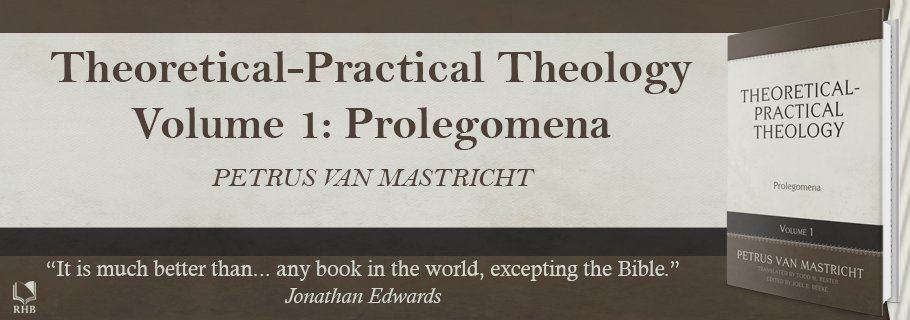This week the blog is sponsored by Reformation Heritage Books and this post is written by Joel R. Beeke.
When people ask me who my favorite Puritan writer is, I admit that my answer has not always been the same over the course of my life. It is often influenced by who I am reading at the time. However, if you managed to corner me and force an answer, today I would say Anthony Burgess (1600-1663), who I believe to be one of the most underrated Puritans ever. I doubt though that I could categorically state that he is the best writer ever. Surely that would be an overstatement on a subjective and personal subject.
I often get a similar and related question. What is my favorite book? If I was stranded on a desert island with my Bible with only one other allowed, I would cheat, but only slightly. It would be the four-volume Reformed experiential masterpiece The Christian’s Reasonable Service by the Dutch theologian Wilhelmus à Brakel (1635-1711). But again, could I assert it is the best book with absolute confidence? I do not think I could go that far.
However, my hesitation on such matters is not shared by the great New England preacher and revivalist (and some say Puritan) Jonathan Edwards. Without being prompted, he freely offered his own dogmatic answer on the question in his correspondence with Joseph Bellamy on January 15th, 1747. What he provides is a stunning claim that a book by Petrus Van Mastricht is “much better than Turretin or any other book in the world, excepting the Bible, in my opinion.” It is at this point that I suspect you are asking “who?” and “what book?” That is understandable, and I am not surprised. Let me tell you about both the man and the book.
THE MAN: PETRUS VAN MASTRICHT
Petrus Van Mastricht (1630–1706) today is a little known, yet immensely influential theologian from the Dutch Further Reformation (Nadere Reformatie), the movement that built on top of the monumental pillars of Reformation truth and the Synod of Dordrecht in the Netherlands. As Edwards hints, he was a colossus and an enormous influence in the seventeenth century and beyond.
THE BOOK: THEORETICAL-PRACTICAL THEOLOGY
The truth is that Van Mastricht and his magnum opus publication have remained in relative obscurity, not because of their quality, but principally because his writings have never, until now, been translated from the Latin into English in order to make them accessible and readable. Finally, then, you can now read this treasure trove of doctrinal, pastoral wisdom without spending years in seminary language classes.
But why is it important, what is it about, and why should you be interested? The emphasis of his work, as the title suggests, is that theology is eminently scriptural, practical, and experiential, affecting the mind and heart. The study of theology, therefore, is by no means characterized by dry and dusty books or dry and dusty theologians. By necessity, doctrine should deeply and fundamentally impact your life when you have the natural and healthy desire to dig deeper into the richness of our sovereign God. Christian doctrine reveals to us all the truth about God and His works for us. Such truths, when applied correctly, supernaturally transforms lives. If theology just stays in the head (or on the bookshelf), it is not fulfilling its intended purpose. What you will find here is edifying doctrine with the pastoral aim of preparing you to live for God through Christ. Don’t miss this!
Was Edwards right that this is the best book other than the Bible? Now—in this first volume, with six more to follow–you can make up your own mind. Tolle Lege.










